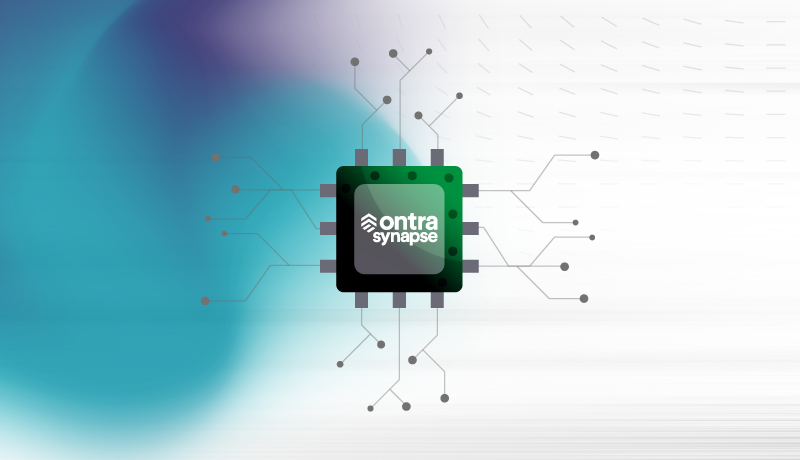It’s essential for private fund managers to keep up with the latest technology and trends to stay competitive in the private markets. An area of business that has seen a lot of growth in recent years is online contracts. One indication of this growth is the rise of electronic contract signing. According to a report from MarketsandMarkets, the value of the global digital signature market size is projected to reach $25.2 billion by 2027.
There’s a good reason for the popularity of online contracts: Digital contract management offers several benefits that traditional contract workflows can’t provide. Let’s explore the advantages of online contracts.
What is an electronic contract?
An electronic or digital contract, also known as an eContract, is a legally binding agreement in a digital format, usually managed via email or contract management software. With online contracts, every stage of the contract lifecycle — from the initial request to enforcement and renewal — is done online.
Electronic contracts typically rely on an eSignature or another electronic mode of acceptance instead of a handwritten signature. Most jurisdictions widely accept eContracts and eSignatures as legally binding, provided they meet certain criteria. According to laws such as the Electronic Signatures in Global and National Commerce Act and the Uniform Electronic Transactions Act, eContracts are valid and enforceable if:
- The parties agree to use eSignatures and have the intent to sign
- The parties have access to the document and can obtain a copy of it
- The eSignature can be traced back to the person who signed it
- The eSignature is secure and reliable, with the contract remaining unaltered after signing
What are the advantages of electronic contracts?
1. Saves time
Contract negotiations often involve several rounds of redlining and revisions, which can be time-consuming when firms handle this via emails. Additionally, the traditional process of printing, signing, and scanning executed contracts further adds to the delay. When a firm depends on slow, old-school processes, it risks losing potential deals.
Contract negotiations move faster when a firm goes digital. Firms using electronic contracts supported by contract playbooks and contract automation software can communicate in the platform, rely on automatic notifications and alerts, and eliminate the hassles of manual signatures.
2. Streamlines contract lifecycle management
In traditional contract management, firms complete every stage of the contract lifecycle manually, which can be fraught with repetitive tasks and time-consuming processes like managing spreadsheets and sending email reminders. Although spreadsheets are useful in certain situations, they’re not ideal for effectively tracking negotiations or investor obligations. They also don’t provide any means of standardizing language across fund documents, extracting structured data from contracts, or gaining actionable insights from previous agreements. As a result, an organization can struggle to accelerate contract negotiations or improve contract compliance processes. Private fund managers can streamline and automate many contract management processes by leveraging a contract lifecycle management system.
3. Offers access to structured data
A contract management solution can categorize and provide access to structured data within digital contracts. This feature gives firms greater visibility into their agreements and enables them to run reports on individual agreements or groups of contracts. Firms can efficiently track the terms they’ve agreed to and trends in contract terms over time, then use the insights derived from structured contract data to inform future negotiations and business decisions.
4. Provides better security
Firms can store electronic contracts in a centralized cloud-based contract repository. Securing contracts in one place enables firms to implement strong cybersecurity protections, such as data encryption, storage backups, and malicious file detection and deletion. When it comes to electronic contract signing, eSignatures can be easily verified using a one-time password or two-step authentication.
5. Reduces spend on outside counsel
When firms rely on old-school contracting methods, they typically send many agreements to outside counsel to negotiate on the firm’s behalf. While outside counsel’s expertise is essential for complex and nuanced contracts, it’s typically unnecessary for routine agreements like NDAs. Firms end up spending a considerable amount for outside law firms to negotiate these high-volume contracts. By switching to digital contracting through a contract automation platform, firms can handle routine agreements faster without relying on expensive outside counsel.
6. Supports proactive contract compliance
When private fund managers rely on spreadsheets and compendium to track investor obligations, they run the risk of non-compliance, which can lead to regulatory audits, fines, and litigation. By using contract management software, firms can mitigate risk and avoid the consequences of failing to fulfill a contractual obligation.
Contract management software can help de-risk compliance by creating repeatable processes that drive accountability and scale across an organization. It can also streamline the contract compliance audit process with features such as tasks and subtasks, ongoing monitoring, robust search, and user-friendly reporting capabilities.
How Ontra supports online contracts
Private fund managers looking to take full advantage of digital contracts should learn more about Ontra’s Legal Operating System for private markets. Ontra uses digital documents, eSignatures, automation, and artificial intelligence to help optimize contract management processes.
Contract Automation helps fund managers accelerate their routine contract negotiations. With a secure online platform, contract playbooks, embedded eSignature, and numerous automation features, firms and their counterparties can quickly complete NDAs and other routine agreements. Once a firm executes an agreement, Ontra’s Legal Network uses AI to quickly translate the contract into structured data and an easy-to-read summary, providing firms with greater visibility and reporting capabilities.
Insight offers private fund managers self-serve access to their contracts and other fund documents. Executed agreements are uploaded into a centralized contract repository with search, tagging, organization, and task features. With digital contracts and access to structured contract data, firms gain visibility into their commitments and can proactively manage contract compliance and risk.


